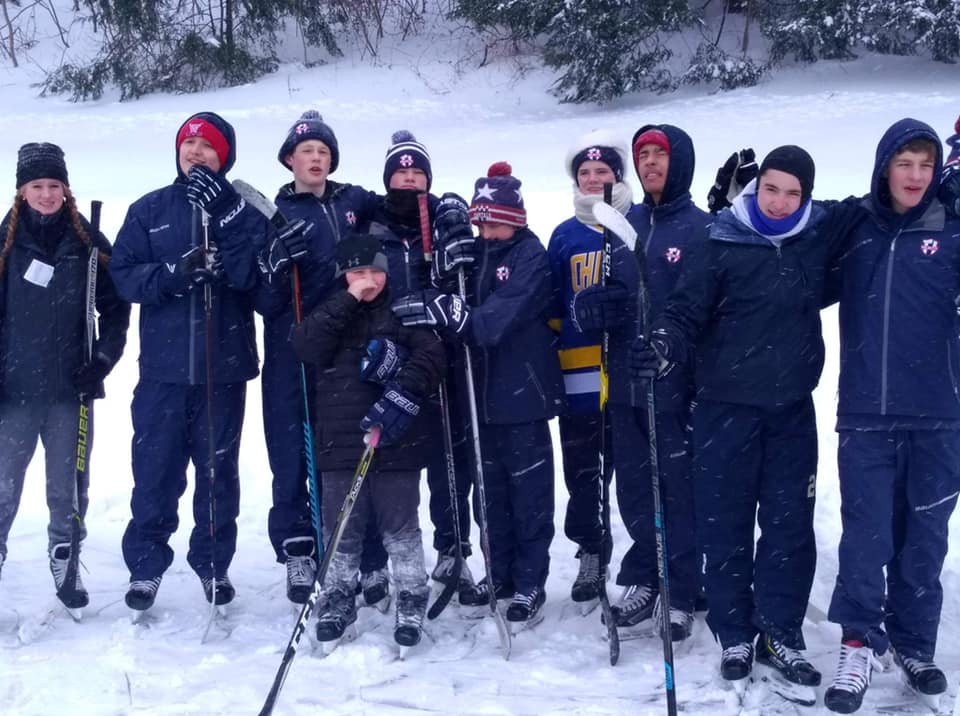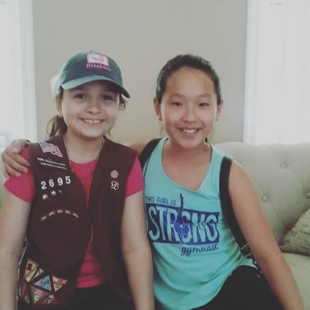NIMH Study on Friendships and Transitions
|
Supported by National Institute of Mental Health: R01-MH58116
Principal Investigator Co-Principal Investigators Research Collaborators |
About
The general objective of our research is to study the nature, quality, functions, and sources of friendship and parent-child relationships during the transitions from elementary school (fifth grade) to middle school (sixth grade); from middle school (eighth grade) to high school (ninth grade); and from high school (twelve grade) to “beyond.” Thus far, data have been collected up until the first year post high school graduation. We have been examining how, and if, friendships and parent-child relationships are related to, and predictive of child/adolescent and family characteristics and to child/adolescent socio-emotional adjustment.
Of specific interest has been the evaluation of the prevalence, stability, and quality of the best friendships of 5th, 6th, 8th, 9th, and 12th grade children/adolescents identified as “typical” (control), socially withdrawn, or aggressive. Another aim of the study has been to determine whether the friendships of socially withdrawn and aggressive children buffer them from developing psychosocial difficulties or whether these friendships actually exacerbate their difficulties. We are also investigating whether, during these various transitional periods, friendship can serve as a protective factor when children’s/adolescents’ relationships with their parents are qualitatively troubling.
Of specific interest has been the evaluation of the prevalence, stability, and quality of the best friendships of 5th, 6th, 8th, 9th, and 12th grade children/adolescents identified as “typical” (control), socially withdrawn, or aggressive. Another aim of the study has been to determine whether the friendships of socially withdrawn and aggressive children buffer them from developing psychosocial difficulties or whether these friendships actually exacerbate their difficulties. We are also investigating whether, during these various transitional periods, friendship can serve as a protective factor when children’s/adolescents’ relationships with their parents are qualitatively troubling.
Recent Publications
Bowker, J.C., Coplan, R.J., Smith, K.A., White, H.I., & Rubin, K.H. (2022). Social withdrawal and shyness. In P.K. Smith & C. Hart (Eds), Wiley-Blackwell Handbook of Childhood Social Development. (3rd Edition). New York: Wiley-Blackwell.
Widmer, A.*, Havewalla, M.*, Bowker, J.C., & Rubin, K.H. (in press). Secure maternal attachment relationships moderate the longitudinal relation between attention deficit hyperactivity symptoms and delinquency in adolescence. Journal of Attention Disorders).
Laursen, B., Dickson, D. J., Boivin, M., Bowker, J. C., Brendgen, M., & Rubin, K. H. (2021). Revisiting the hypothesis that friends buffer against diminished self-esteem arising from poor quality parent–adolescent relationships: A replication study. Developmental Psychology, 57(12), 2067-2081. https://doi.org/10.1037/dev0001119
Oh, W., Bowker, J.C., Santos, A.J., Ribeiro, O., Guedes, M., Freitas, M., Kim, H.K., Song, S., & Rubin, K.H. (2021). Distinct profiles of relationships with mothers, fathers, and best friends and social-behavioral functioning in early adolescence: A cross-cultural study. Child Development, 92, 1154-1170. https://doi.org/10.1111/cdev.13610
Rubin, K.H. & Chronis-Tuscano, A. (2021). Perspectives on social withdrawal in childhood: Past, present, and prospects. Child Development Perspectives.15 (3), 160-167. https://doi.org/10.1111/cdep.12417
Rubin, K.H. (2021). Social withdrawal in childhood: A personal history of the theory and research that guided a program of developmental research. In R.J. Coplan, J.C. Bowker, & L. Nelson (Eds). Handbook of Solitude (2nd edition). New York:Wiley.
Havewalla, M., Bowker, J.C., Smith, K.A., Rose-Krasnor, L., Booth-LaForce, C., Laursen, B., Felton, J.W., & Rubin, K.H. (2021). Peer influence during adolescence: The moderating role of parental support. Children, 8 (4). https://doi.org/10.3390/children8040306
Meinzer, M., Felton, J., Oddo, L.*, Rubin, K.H. & Chronis-Tuscano, A. (2021). ADHD and parent-child relationship difficulties at the transition to high school predict depressive symptoms. Journal of Attention Disorders. 25 (12), 1699-1711. https://doi.org/10.1177/1087054720923088
Wagner, N.J., Bowker, J.C., & Rubin, K.H. (2020). Associations between Callous-Unemotional Traits and Peer-Rated Social-Behavioral Outcomes in Elementary and Middle School. Journal of Abnormal Child Psychology. 48, 757–769 https://doi.org/10.1007/s10802-020-00636-5
Gazelle, H. & Rubin, K.H. (2019). Social withdrawal and anxiety in childhood and adolescence: Interaction between individual tendencies and interpersonal learning mechanisms in development. Journal of Abnormal Child Psychology, 47, 1101-1106. DOI: 10.1007/s10802-019-00557-y
Hastings, P.D., Rubin, K.H., Smith, K.A.,* & Wagner, N.* (2019). Parents of socially withdrawn children. In M. Bornstein (Ed.), Handbook of Parenting. (3rd Edition). New York: Routledge. ISBN-13: 978-1138228788
Barstead, M. G.*, Smith, K. A.*, Laursen, B. , Booth‐LaForce, C. , King, S.* and Rubin, K. H. (2018), Shyness, Preference for Solitude, and Adolescent Internalizing: The Roles of Maternal, Paternal, and Best‐Friend Support. Journal of Research on Adolescence, 28, 488-504. doi:10.1111/jora.12350
Rubin, K.H. & Bowker, J. (2018). Friendship. In M. Bornstein, Arterberry, M.E., Fingerman, K.L., & Lansford, J.E. (Eds). The SAGE Encyclopedia of Lifespan Human Development. (pp. 908-910). Thousand Oaks, CA: Sage. DOI: http://dx.doi.org/10.4135/9781506307633.n339
Rubin, K.H. & Barstead, M.* (2018). Social withdrawal and solitude. In M. Bornstein, Arterberry, M.E., Fingerman, K.L., & Lansford, J.E. (Eds). The SAGE Encyclopedia of Lifespan Human Development. (2101-2103). Thousand Oaks, CA: Sage. DOI: http://dx.doi.org/10.4135/9781506307633.n780
Rubin, K.H. & & McDonald, K. (2018). Social relationships. In M. Bornstein, Arterberry, M.E., Fingerman, K.L., & Lansford, J.E. (Eds). The SAGE Encyclopedia of Lifespan Human Development. (2078-2082). Thousand Oaks, CA: Sage. DOI: http://dx.doi.org/10.4135/9781506307633.n772
Rubin, K.H., Bowker, J.C., Barstead, M.G., & Coplan, R.J. (2018). Withdrawing from the peer group. In W. Bukowski, B. Laursen, & K.H. Rubin (Eds.), Handbook of peer interactions, relationships, and groups. (2 nd Edition). New York: Guilford. ISBN 9781462525010
Malti, T. & Rubin, K.H. (2018). Aggression in childhood and adolescence: Definition, theory, and history. In T. Malti & K.H. Rubin (Eds.), Handbook of Child and Adolescent Aggression. New York: Guilford. ISBN: 9781462526208
Rubin, K.H. & Malti, T. (2018). Challenges and priorities for aggression researchers. In T. Malti & K.H. Rubin (Eds.), Handbook of Child and Adolescent Aggression. New York: Guilford. ISBN: 9781462526208
Wang, J.M., Hartl, A.C., Laursen, B., & Rubin, K.H. (2017). The high costs of low agreeableness: Low agreeableness exacerbates interpersonal consequences of rejection sensitivity in U.S. and Chinese adolescents. Journal of Research in Personality, 67,36-43. DOI: 10.1016/j.jrp.2016.02.005
Smith, K.*, Barstead, M.G.*, & Rubin, K.H. (2017). Personality traits as moderators of the relation between social withdrawal and internalizing problems. Journal of Youth and Adolescence. 46, 772-786. DOI: 10.1007/s10964-016-0594-z
Huey, M., Hiatt, C., Laursen, B., Burk, W.J., & Rubin, K.H. (2017). Mother-adolescent conflict types and adolescent adjustment: A person-oriented analysis. Journal of Family Psychology. DOI: 10.1037/fam0000294
McDonald, K. & Rubin, K.H. (2017). Peer relationships and influence in childhood. In V.S. Ramachandran (Editor-in-Chief). Reference Module in Neuroscience and Biobehavioral Psychology. (pp. 1-9). New York: Elsevier. ISBN: 9780128093245
Bowker, J.C., Coplan, R.J., Smith, K.A., White, H.I., & Rubin, K.H. (2022). Social withdrawal and shyness. In P.K. Smith & C. Hart (Eds), Wiley-Blackwell Handbook of Childhood Social Development. (3rd Edition). New York: Wiley-Blackwell.
Widmer, A.*, Havewalla, M.*, Bowker, J.C., & Rubin, K.H. (in press). Secure maternal attachment relationships moderate the longitudinal relation between attention deficit hyperactivity symptoms and delinquency in adolescence. Journal of Attention Disorders).
Laursen, B., Dickson, D. J., Boivin, M., Bowker, J. C., Brendgen, M., & Rubin, K. H. (2021). Revisiting the hypothesis that friends buffer against diminished self-esteem arising from poor quality parent–adolescent relationships: A replication study. Developmental Psychology, 57(12), 2067-2081. https://doi.org/10.1037/dev0001119
Oh, W., Bowker, J.C., Santos, A.J., Ribeiro, O., Guedes, M., Freitas, M., Kim, H.K., Song, S., & Rubin, K.H. (2021). Distinct profiles of relationships with mothers, fathers, and best friends and social-behavioral functioning in early adolescence: A cross-cultural study. Child Development, 92, 1154-1170. https://doi.org/10.1111/cdev.13610
Rubin, K.H. & Chronis-Tuscano, A. (2021). Perspectives on social withdrawal in childhood: Past, present, and prospects. Child Development Perspectives.15 (3), 160-167. https://doi.org/10.1111/cdep.12417
Rubin, K.H. (2021). Social withdrawal in childhood: A personal history of the theory and research that guided a program of developmental research. In R.J. Coplan, J.C. Bowker, & L. Nelson (Eds). Handbook of Solitude (2nd edition). New York:Wiley.
Havewalla, M., Bowker, J.C., Smith, K.A., Rose-Krasnor, L., Booth-LaForce, C., Laursen, B., Felton, J.W., & Rubin, K.H. (2021). Peer influence during adolescence: The moderating role of parental support. Children, 8 (4). https://doi.org/10.3390/children8040306
Meinzer, M., Felton, J., Oddo, L.*, Rubin, K.H. & Chronis-Tuscano, A. (2021). ADHD and parent-child relationship difficulties at the transition to high school predict depressive symptoms. Journal of Attention Disorders. 25 (12), 1699-1711. https://doi.org/10.1177/1087054720923088
Wagner, N.J., Bowker, J.C., & Rubin, K.H. (2020). Associations between Callous-Unemotional Traits and Peer-Rated Social-Behavioral Outcomes in Elementary and Middle School. Journal of Abnormal Child Psychology. 48, 757–769 https://doi.org/10.1007/s10802-020-00636-5
Gazelle, H. & Rubin, K.H. (2019). Social withdrawal and anxiety in childhood and adolescence: Interaction between individual tendencies and interpersonal learning mechanisms in development. Journal of Abnormal Child Psychology, 47, 1101-1106. DOI: 10.1007/s10802-019-00557-y
Hastings, P.D., Rubin, K.H., Smith, K.A.,* & Wagner, N.* (2019). Parents of socially withdrawn children. In M. Bornstein (Ed.), Handbook of Parenting. (3rd Edition). New York: Routledge. ISBN-13: 978-1138228788
Barstead, M. G.*, Smith, K. A.*, Laursen, B. , Booth‐LaForce, C. , King, S.* and Rubin, K. H. (2018), Shyness, Preference for Solitude, and Adolescent Internalizing: The Roles of Maternal, Paternal, and Best‐Friend Support. Journal of Research on Adolescence, 28, 488-504. doi:10.1111/jora.12350
Rubin, K.H. & Bowker, J. (2018). Friendship. In M. Bornstein, Arterberry, M.E., Fingerman, K.L., & Lansford, J.E. (Eds). The SAGE Encyclopedia of Lifespan Human Development. (pp. 908-910). Thousand Oaks, CA: Sage. DOI: http://dx.doi.org/10.4135/9781506307633.n339
Rubin, K.H. & Barstead, M.* (2018). Social withdrawal and solitude. In M. Bornstein, Arterberry, M.E., Fingerman, K.L., & Lansford, J.E. (Eds). The SAGE Encyclopedia of Lifespan Human Development. (2101-2103). Thousand Oaks, CA: Sage. DOI: http://dx.doi.org/10.4135/9781506307633.n780
Rubin, K.H. & & McDonald, K. (2018). Social relationships. In M. Bornstein, Arterberry, M.E., Fingerman, K.L., & Lansford, J.E. (Eds). The SAGE Encyclopedia of Lifespan Human Development. (2078-2082). Thousand Oaks, CA: Sage. DOI: http://dx.doi.org/10.4135/9781506307633.n772
Rubin, K.H., Bowker, J.C., Barstead, M.G., & Coplan, R.J. (2018). Withdrawing from the peer group. In W. Bukowski, B. Laursen, & K.H. Rubin (Eds.), Handbook of peer interactions, relationships, and groups. (2 nd Edition). New York: Guilford. ISBN 9781462525010
Malti, T. & Rubin, K.H. (2018). Aggression in childhood and adolescence: Definition, theory, and history. In T. Malti & K.H. Rubin (Eds.), Handbook of Child and Adolescent Aggression. New York: Guilford. ISBN: 9781462526208
Rubin, K.H. & Malti, T. (2018). Challenges and priorities for aggression researchers. In T. Malti & K.H. Rubin (Eds.), Handbook of Child and Adolescent Aggression. New York: Guilford. ISBN: 9781462526208
Wang, J.M., Hartl, A.C., Laursen, B., & Rubin, K.H. (2017). The high costs of low agreeableness: Low agreeableness exacerbates interpersonal consequences of rejection sensitivity in U.S. and Chinese adolescents. Journal of Research in Personality, 67,36-43. DOI: 10.1016/j.jrp.2016.02.005
Smith, K.*, Barstead, M.G.*, & Rubin, K.H. (2017). Personality traits as moderators of the relation between social withdrawal and internalizing problems. Journal of Youth and Adolescence. 46, 772-786. DOI: 10.1007/s10964-016-0594-z
Huey, M., Hiatt, C., Laursen, B., Burk, W.J., & Rubin, K.H. (2017). Mother-adolescent conflict types and adolescent adjustment: A person-oriented analysis. Journal of Family Psychology. DOI: 10.1037/fam0000294
McDonald, K. & Rubin, K.H. (2017). Peer relationships and influence in childhood. In V.S. Ramachandran (Editor-in-Chief). Reference Module in Neuroscience and Biobehavioral Psychology. (pp. 1-9). New York: Elsevier. ISBN: 9780128093245


